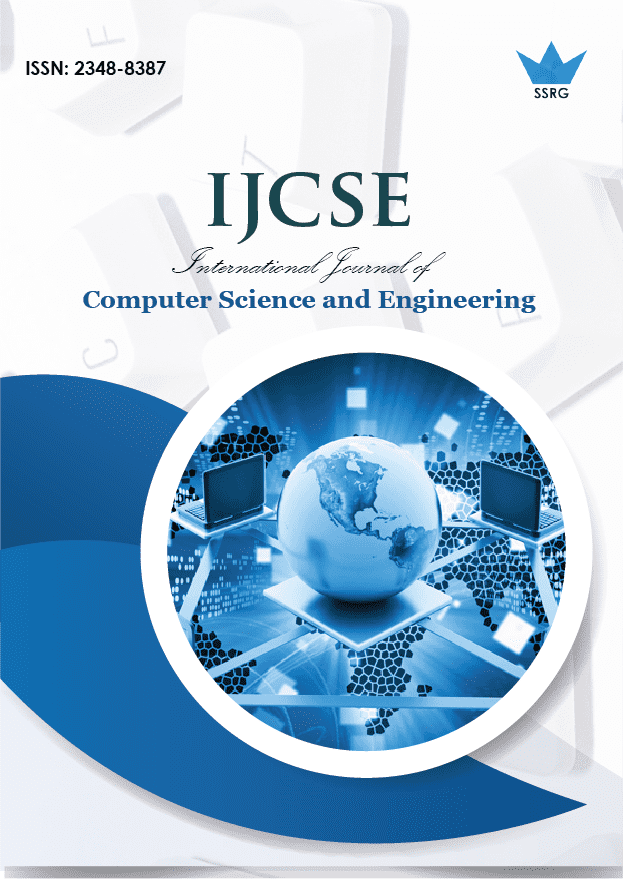Novel Emprical Methods for Advance Software Engineering Research

| International Journal of Computer Science and Engineering |
| © 2018 by SSRG - IJCSE Journal |
| Volume 5 Issue 7 |
| Year of Publication : 2018 |
| Authors : Manas Kumar Yogi, Godavarthy Kavya |
How to Cite?
Manas Kumar Yogi, Godavarthy Kavya, "Novel Emprical Methods for Advance Software Engineering Research," SSRG International Journal of Computer Science and Engineering , vol. 5, no. 7, pp. 14-20, 2018. Crossref, https://doi.org/10.14445/23488387/IJCSE-V5I7P103
Abstract:
Software engineering is an strongly people-oriented task, yet few concepts are known regarding the role of software engineers. In order to improve software engineering tools and practice, it is much essential to conduct field studies, i.e., to study real practitioners as they solve real problems. To aid this goal, we exhibit assorted data collection techniques for comparable studies, organized encompassing a taxonomy based on the degree to which synergy with software engineers is essential. For every technique, examples are provided ,along with analysis of some of its advantages and disadvantages, and a discussion of special reporting requirements.
Keywords:
Ethnography, quasi-experiments, empirical, software engineering
References:
[1] Jørgensen, M. and Sjøberg, D.I.K. (2004) Generalization and Theory-Building in Software Engineering Research. IEE Proceedings, Workshop on Empirical Assessment in Software Engineering (EASE’04), at ICSE’04, pp. 29–36.
[2] Kitchenham, B., Pickard, L., and Pfleeger, S.L. (1995) Case studies for method and tool evaluation, IEEE Software, 12(4), 52–62.
[3] Klein, H.K. and Myers, M.D. (1999) A set of principles for conducting and evaluating interpretive field studies in information systems, MIS Quarterly, 23(1), 67–93.
[4] Lau, F. (1999). Towards a framework for action research in information systems studies, Information Technology and People, 12(2), 148–175.
[5] Lincoln, Y.S. and Guba, E.G. (1985) Naturalistic Inquiry. Sage, Beverly Hills, CA. Littlejohn, S.W. and Foss, K.A. (2004) Theories of Human Communication. 8th Edition, Wadsworth Publishing, Belmont, CA.
[6] McGrath, J.E. (1995) Methodology matters: doing research in the behavioral and social sciences. In Human–Computer Interaction: Toward the Year 2000,
[7] R.M. Baecker, J. Grudin, W. Buxton, A., and Greenberg, S., Eds. Morgan Kaufmann Publishers, San Francisco, CA, pp. 152–169.
[8] Meltzoff, J. (1998) Critical Thinking About Research: Psychology and Related Fields. American Psychological Association, Washington DC.
[9] Menand, L. (1997) Pragmatism: A Reader. Vintage Press, New York. Morse, J.M., Barrett, M., Mayan, M., Olson, K. and Spiers, J. (2002) Verification strategies for establishing reliability and validity in qualitative research, International Journal of Qualitative Methods, 1(2), 1–19.
[10] Robinson, H., Segal, J. and Sharp, H. (2007) Ethnographically-informed empirical studies of software practice, Information and Software Technology, 49(6), 540–551.
[11] Sandelowski, M. (1993) Rigor or rigor mortis: the problem of rigor in qualitative research revisited, Advances in Nursing Science, 16(2), 1–8.

 10.14445/23488387/IJCSE-V5I7P103
10.14445/23488387/IJCSE-V5I7P103